Guiob Church Ruins will take you to Camiguin’s medieval and tragic past. Its stone-rich and imposing renaissance architectural style will bring you to an era that was dominated by muskets and cannons fighting against swords and spears. It also paints a picture of a peaceful settlement and the rapid spread of faith that brought about the community’s aspiration to have a grand structure of worship.
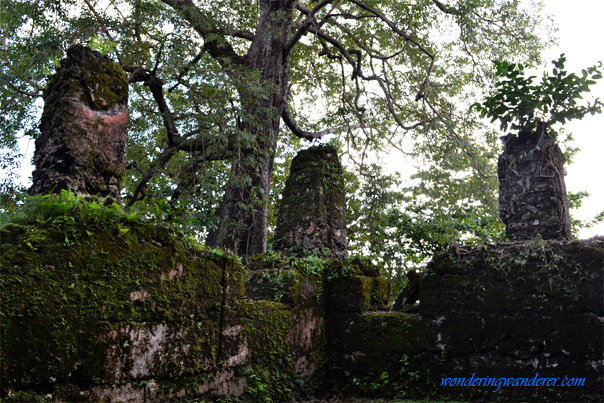
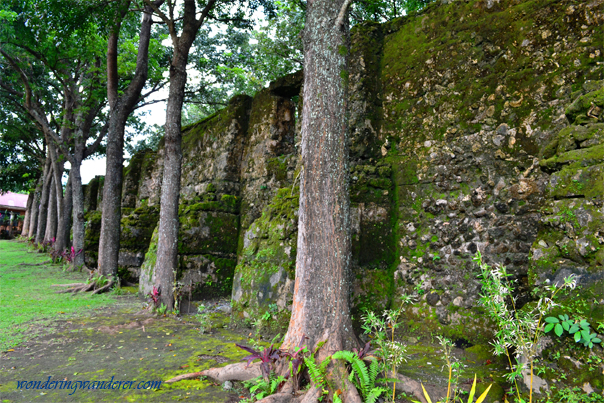
May 13, 1871, is the date of the cataclysmic event that trembled the entire island. The eruption of Mount Volcan wreaked havoc mercilessly. Plenty of houses were immediately destroyed by the falling rocks and lava. The town’s most prized Guiob Church was no exception to the destruction. Despite the explosion’s magnitude, a big trace of the church’s once-grand beauty is still standing proudly to share its legend to many generations.
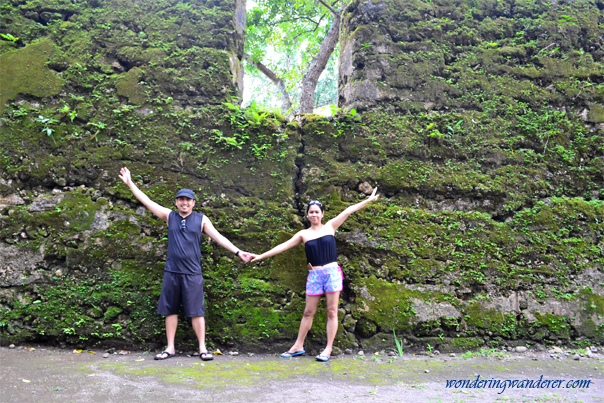
Our Experience at Guiob Church Ruins
It was a serene afternoon during our trip there. Upon reaching its entrance, we saw a few people who were lining up to fill out their guest book. I had a quick glance at the list and I noticed the most of Camiguin’s visitors that day are from Cebu. There’s no entrance fee to explore the ruins but it’s great to see the visitors generously giving to their donation box. We believe that the fund would help to maintain the cleanliness of the area.
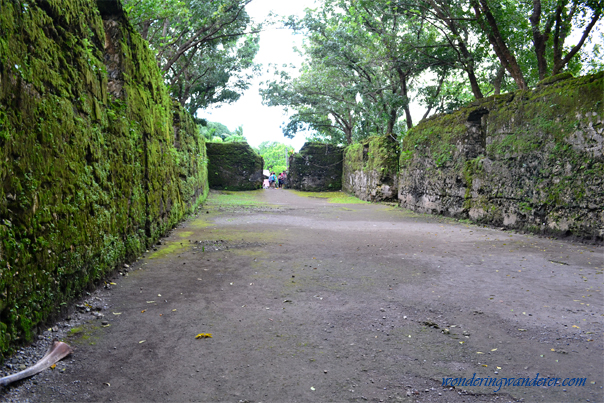
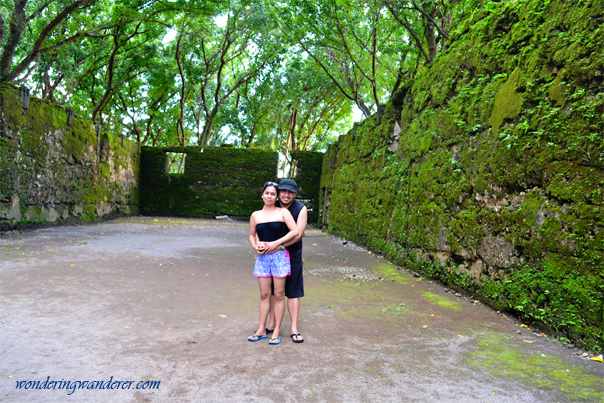
We were greeted by the ruins’ imposing and sturdy walls which seem four times thicker than our modern walls. I can’t imagine the amount of labor it took to build this church considering the absence of heavy equipment like trucks and bulldozers during their time. Their two-floor height would have been a great challenge to its laborers considering how large the rocks they used to build them.
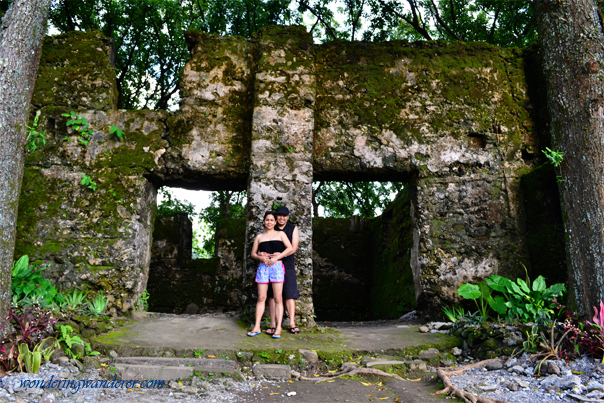
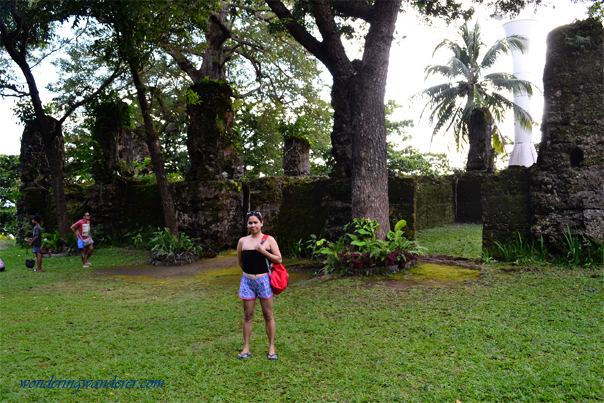
The Church Complex
The church complex is really large and quite a pleasure to explore. Filled with century-old trees and rich in grass—your journey to the past in this place is well-scented by nature. We later saw its three-floor bell tower and its convent with several rooms. It must have been really terrifying to be inside those buildings during the volcanic earthquake considering how big and heavy the walls that can fall on you.
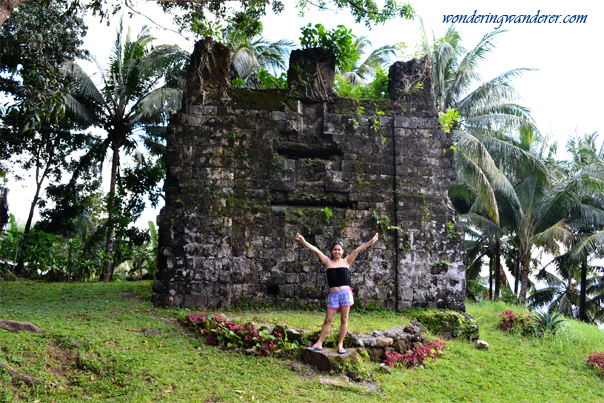
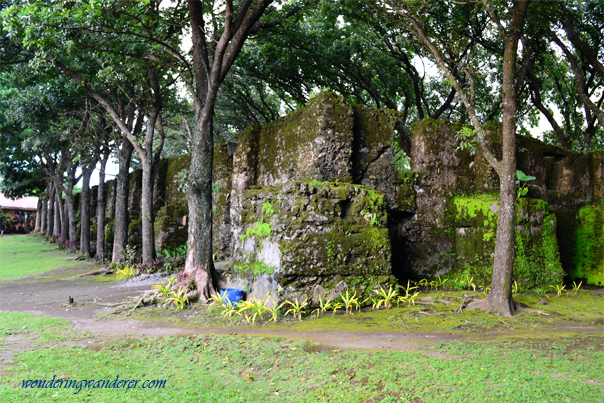
The Guiob Church’s remains inevitably got filled with moss and we even saw one part that was already crawled by a tree’s roots. I can picture the volcano’s huge rocks hitting the walls on the parts with large cracks and damaged parts. These structures may be scarred and broken but their stories will live on. This old church that was built in the 16th century is clearly way beyond vintage.
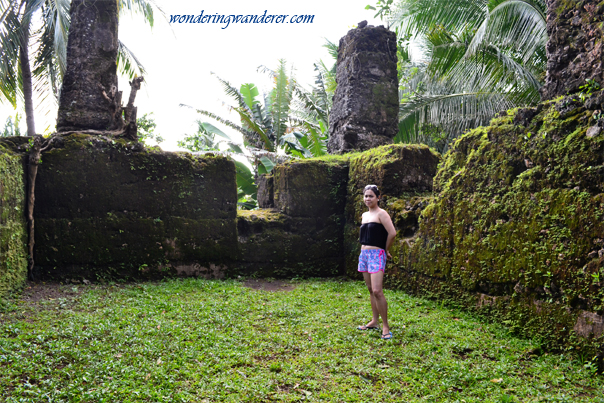
At the entrance of the Guiob Church Ruins, we saw a written account about the volcano’s eruption. The account was engraved in a bronze plate with the words below:
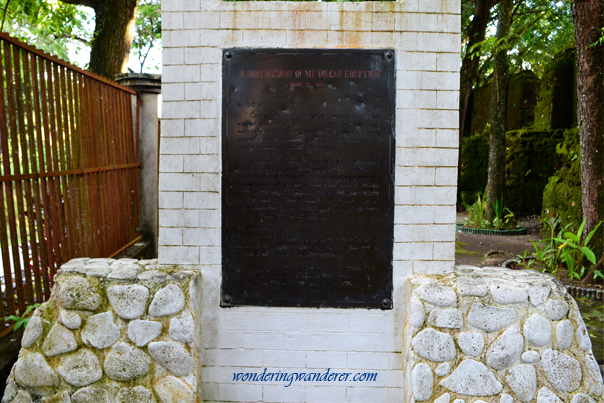
A BRIEF ACCOUNT OF MT. VOLCAN ERUPTION
May 13, 1871
6:00 P.M.
Cotta Bato, the capital of Camiguin Island was a quiet and attractive town, verdant in its natural wonders. Its peaceful shores provided strolling grounds for its inhabitants as they basked under the gracious moonlight. Suddenly, tranquility came to a halt as a subterranean rumbling sowed indescribable terror. Hundreds of houses and the church crumbled into pieces. The ground rolled and broke into deep crevices with a horrifying earthquake served only as a prelude to the destructive climax, a cataclysm never witnessed before. Mt. Volcan gave out its fiercest and most violent outbreak.
6:20 P.M.
Cotta Bato was but a dreadful pile of ruins. The single volcanic eruption buried a beautiful town into obscurity. Hundreds of lives were lost while the survivors sought refuge in the open country that gave them hope for tomorrow.

It’s a beautiful place